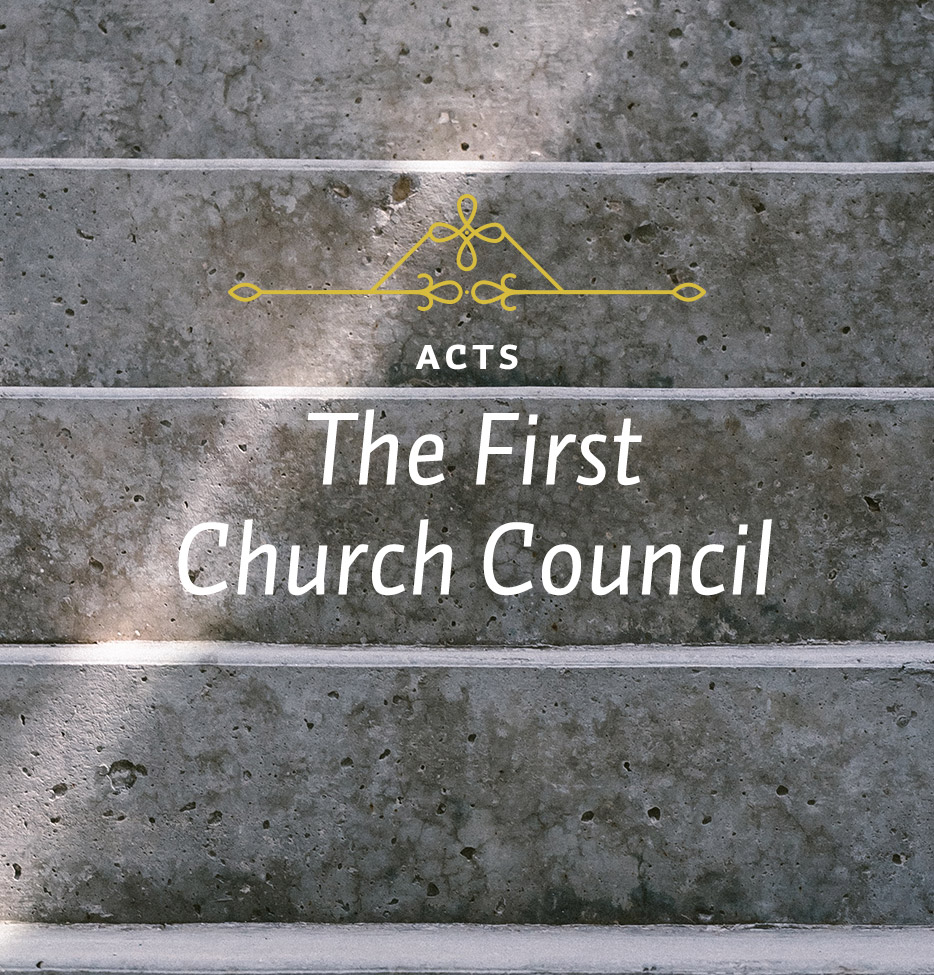Finally, James gave a speech. Interestingly enough, James was the chairman of the council, not Peter. James did not think like Paul. He was the most Jewish of all the Jewish leaders. He even seems to have been somewhat of a legalist. But building on what Peter recounted, he now said virtually the same thing: “In my judgment, therefore, we should not make it difficult for the Gentiles who are turning to God” (v. 19).
James was wise too, in his own way. He understood that the people to be won over to the right position were not the Gentiles. Probably not many of them were present at the meeting. It was not the Gentiles who needed to be persuaded. It was the Jews. So James began by referring not to Paul, who was the apostle to the Gentiles—that may have been a sticking point in itself—but by referring to Peter. And he refers to him not as “Peter,” that is, by his Greek name (petros means “stone” in Greek), but by his Jewish name: “Simon.” And, if I may point this out, by the most Jewish form of his Jewish name—not “Simon” merely, but “Simeon.”1 “Simeon has described to us how God at first showed his concern by taking from the Gentiles a people for himself.”
Then James did what we have missed thus far in the debate: he quoted Scripture. He quoted from Amos, one of the Minor Prophets. Amos is a book of judgment. There are only a very few verses at the very end that speak of blessing in the last days. But these are the verses James chose: “After this I will return and rebuild David’s fallen tent. Its ruins I will rebuild, and I will restore it, that the remnant of men may seek the Lord, and all the Gentiles who bear my name, says the Lord, who does these things, that have been known for ages” (vv. 16-18; cf. Amos 9:11-12).
James was saying, “God has spoken on this matter. God said He would save the Gentiles. Now He has done it. Therefore, in my judgment we must not oppose God or the Scriptures by making it difficult for the Gentiles to turn to God.”
At this point James proposed writing a letter to the Gentiles, a letter which is given in full in verses 24-29, telling of the council’s decision but encouraging the Gentiles “to abstain from food polluted by idols, from sexual immorality, from the meat of strangled animals, and from blood” (v. 20).
I suggested at the beginning that even the Jerusalem council may have made some errors, and when I come to this letter I sense that it was at least a weakness if not, in fact, an error. Commentators have pointed out that in the conclusion brought by James and in the letter written to the Gentile churches, the one thing that is not mentioned is the matter that began the whole controversy: circumcision. James does not mention it, and the letter to the Gentiles does not mention it. All the letter says is that “it seemed good to the Holy Spirit and to us not to burden you with anything beyond the following requirements” (v. 28). I think it would have been better to have mentioned circumcision and to have said nothing about the other matters.
Yet I wasn’t there. Who am I to say that the council of Jerusalem erred? Certainly the letter was statesmanlike, and maybe to be statesmanlike was the right course to be taken at this point, once the real battle had been won. Besides, the other matters would certainly be dealt with in time.
How hard it is to know the difference between a principle which involves the very essence of the Gospel, which to yield on is to betray Christ, and a mere statesmanlike position. Hard? Yes, but not impossible! Guided by the Holy Spirit, this seems to be what this first great council of the church achieved. Certainly as Paul and Barnabas went back to the Gentiles with this letter, they went back saying (and we know this because Paul tells us about it in Galatians), “The Gentiles were not compelled to be circumcised.”
Everett F. Harrison has one of the best commentaries on Acts that I have found, and he says that the council accomplished five important things:
1. The Gospel of divine grace was reaffirmed.
2. The unity of the Church was safeguarded.
3. The evangelism of the Gentiles could proceed without hindrance. Most of Paul’s churches were founded after the council, and they were Gentile churches.
4. The Gentile churches which had already been established were given encouragement (cf. 16:4-5).
5. The future of the Church as a whole was guaranteed.
It would have been a great thing if in every age of the Church, in every conciliar debate, just those five things were accomplished.2
1See the footnote in the New International Version.
2Everett F. Harrison, Acts: The Expanding Church (Chicago, IL: Moody, 1975), 239.






